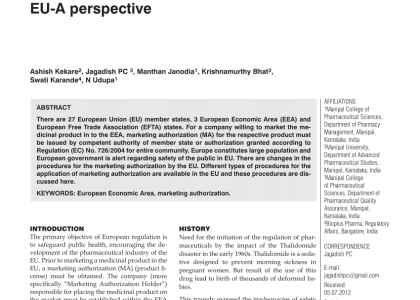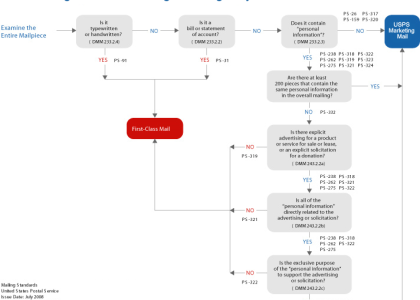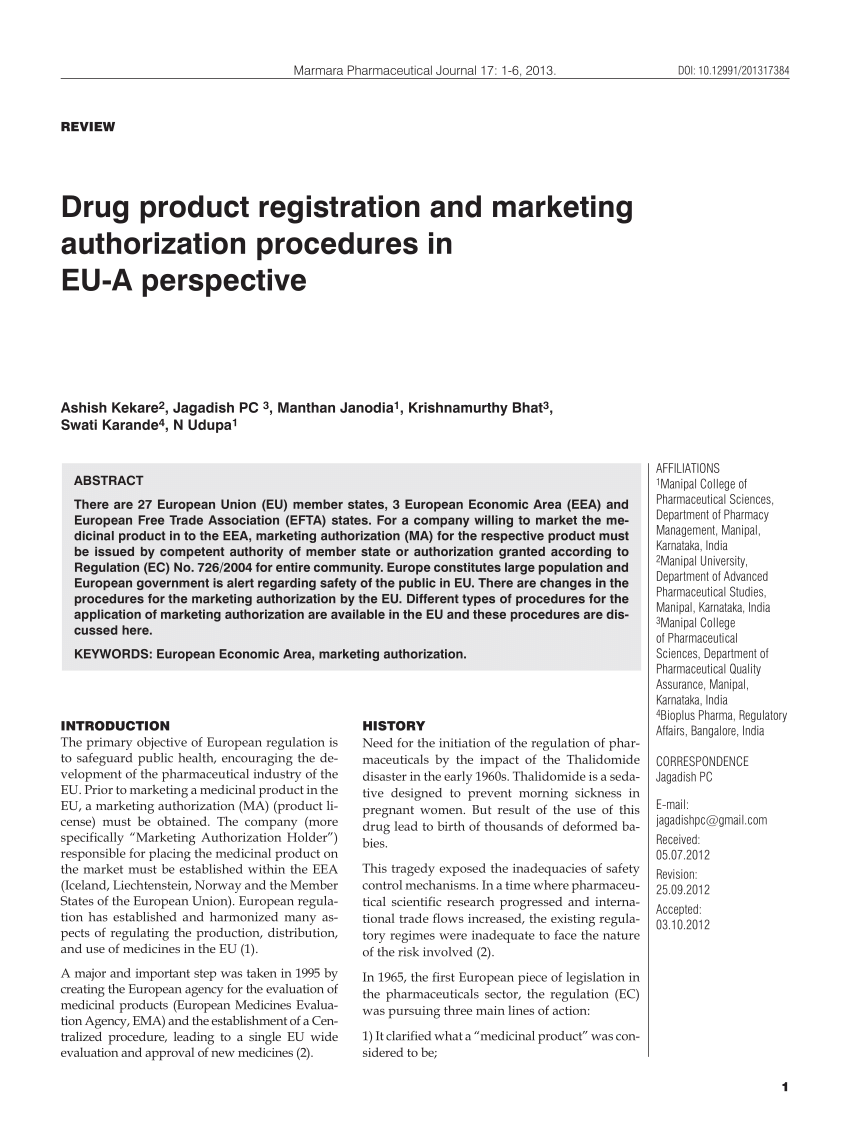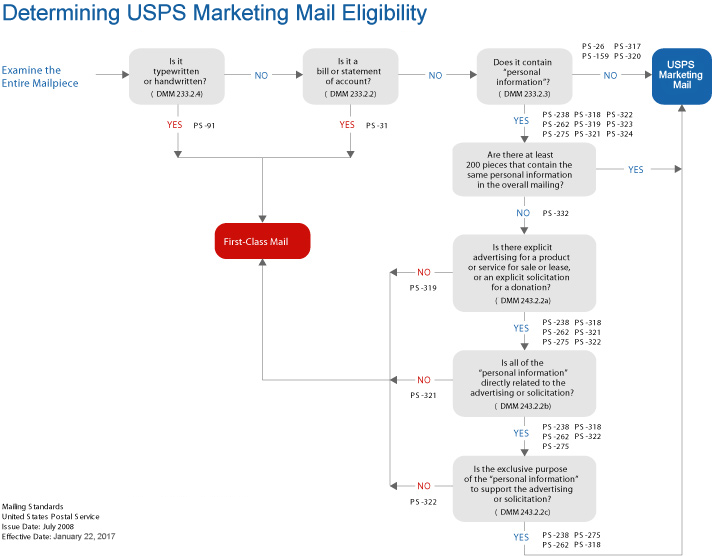Charting a career trajectory that culminates in the role of a marketing director isn’t a cakewalk. However, with knowledge, strategic foresight, and all-important guidance, such a goal ceases to be a pipedream and morphs into a viable vision. This article aspires to be your companion on this professional journey, serving as a comprehensive guide to becoming a successful marketing director.
Marketing directors are pivotal cogs in an organization’s machinery, driving critical bottom-line and brand impact. Their role encompasses an extensive range of responsibilities – from steering critical marketing initiatives and blueprinting marketing strategies to overseeing teams and customer research.
Understandably, then, the evolution from a budding marketer to the role of a marketing director demands a diverse skillset, a thorough understanding of the marketing landscape, and hard-to-earn professional experience. As such, having a roadmap—a definitive guide you can turn to—can be infinitely beneficial.
As we delve into the specifics of excelling as a marketing director, remember that success in such a dynamic field hinges on constant learning and upskilling. It is a role that necessitates staying abreast of the newest shifts in the marketing realm, a task that requires a knack for learning and a passion for marketing. With that in mind, let’s dive into what can be your key to unlocking significant career progression and success.
The Functions and Duties of a Marketing Director
In the competitive business world, the role of a Marketing Director is crucial for a company’s success. As the head of the marketing department, the Marketing Director plays a significant role in shaping and driving a company’s marketing strategy and efforts. This position carries a lot of responsibility, with the success or failure of a marketing campaign often resting on their shoulders.
Strategic planning is one of the primary responsibilities of a Marketing Director. They formulate marketing strategies and plans to help the company reach its sales objectives. This may include identifying potential markets, setting pricing strategies, and developing advertising and promotional campaigns.
Another key duty of a Marketing Director is team leadership. They are often responsible for leading a team of marketing professionals, providing them direction and inspiring them to deliver their best. This involves coaching, delegating tasks, setting goals, and monitoring performance.
Accountability and Activities of a Marketing Director
Furthermore, a Marketing Director is often tasked with analyzing marketing and sales data. This is crucial in understanding market trends, customer behavior, and the effectiveness of the company’s marketing efforts. The insights derived from this data analysis guide the formulation of new or improved marketing strategies.
| Role | Responsibility |
|---|---|
| Strategic Planning | Formulate marketing strategies and plans to drive sales. |
| Team Leadership | Lead a team of marketing professionals, providing direction and inspiration. |
| Data Analysis | Analyze marketing and sales data to understand market trends and customer behavior. |
In summary, the role of a Marketing Director is multi-faceted and demanding, requiring strategic thinking, leadership abilities, and a deep understanding of market trends and consumer behavior. Given the significant responsibilities, becoming a successful Marketing Director is no small task, but with the right skills and experience, it can be a rewarding career.
Key Competencies and Insight for a Proficient Leader in Marketing
Typical skills required for marketing directors
A proficient leader in marketing needs a variety of core competencies in order to be successful. Below are some of the key skills and knowledge areas:
- Strategic thinking and decision making: Highly effective marketing directors are strategic thinkers, able to evaluate broad-reaching trends and then use this insight to make concrete business decisions. In this profession, it’s crucial to see the bigger picture, but also identify how individual departmental tasks fit into the organization’s overall strategic aims.
- Effective communication: Marketing directors must be equipped with strong communication skills, allowing them to effectively share ideas, influence others, and foster a sense of unity within their team. They must be capable of adjusting their communication style to different audiences, whether it be stakeholders, team members, or consumers.
- Analytical abilities: As a marketing director, understanding and utilizing marketing metrics and data analysis is extremely important. They need to have the ability to mine relevant data, analyze it, draw meaningful conclusions, and use this information to shape their marketing strategies.
- Leadership and Management: A successful marketing director will have exceptional leadership and managerial skills, over and above delegation. They need to know how to lead, motivate and engage their team, manage resources and resolve conflicts in order to deliver outstanding results.
- Digital Marketing Expertise: The digital world is ever-evolving. To stay ahead of the curve, effective marketing directors must be familiar with current trends in SEO, social media, content marketing, email marketing, and mobile marketing.
While these are some of the key abilities for a marketing director, it’s essential to remember that each company and industry could require additional, specific skills or knowledge.
Necessary knowledge for marketing directors
Setting aside skills, there’s also some specific knowledge areas that marketing directors should bag:
- Product and Service Knowledge: Marketing Directors should have a deep understanding of their company’s product and/or service. They need to know how it functions, who it benefits, and most importantly, why consumers should choose it over similar offerings.
- Consumer Behavior Understanding: Understanding customer behavior is a critical aspect of effective marketing. This involves knowing who your target audience are, their preferences, motivations, and the kind of messaging they respond to.
- Competitor Insight: An in-depth understanding of the competition, their strengths, weaknesses, marketing techniques, and target audiences can help marketing directors shape effective strategies for their own organization.
These key knowledge areas should form the basis of a marketing director’s understanding of their marketplace, and can assist them in driving success for their team.
Essential Academic Qualifications and Specialized Training for Aspiring Marketing Directors
Embarking on the journey to become a top-notch director of marketing requires a strong foundation of academic credentials. Generally speaking, a bachelor’s degree in Marketing, Business Administration, or related fields is a must. This course equips students with pertinent marketing knowledge such as market research, consumer behavior, advertising, and sales.
In today’s highly competitive corporate world, aspiring marketing directors may want to enhance their profiles further. An advanced degree such as a Master of Business Administration (MBA) with specialization in Marketing is often favored by employers. This high-ranking qualification empowers marketers to understand sophisticated concepts in strategic planning, managerial finance, and market-driven strategy.
Professional Certifications for Marketing Directors
Professional certificates are a testament to a marketing director’s competencies and expertise. Although they are not mandatory, they can certainly improve career prospects. Here are some widely recognized ones:
- Certified Marketing Management Professional (CMMP): This designation, awarded by the International Institute of Marketing Professionals (IIMP), shows proficiency in strategic marketing management.
- Professional Certified Marketer (PCM): This certification, bestowed by the American Marketing Association (AMA), confirms the holder’s understanding and application of the essential aspects of marketing.
- Online Marketing Certified Professional (OMCP): This certification is an indication of knowledge and competency in digital marketing areas like SEO, social media, and content marketing.
Conclusionally, a strong education backed by relevant professional certifications can make a significant difference in a marketing director’s career growth. It not only boosts credibility but also enhances job competitiveness.
Path to Gaining Proficiency in the Field of Marketing
Aspiring to be a successful marketing director requires comprehensive proficiency in multiple marketing strategies. The journey towards becoming an expert in marketing involves several crucial steps that are indispensable to the process.
Obtaining Relevant Education
The foundation to marketing expertise lies in acquiring appropriate, formal education. Degrees such as Bachelor and Master’s in Marketing provide an excellent base of knowledge. These focus on key marketing principles, strategies, product developments and market research.
Diversifying Skillset
Marketing is a multi-faceted field that requires a diverse skillset that extends beyond conventional marketing knowledge. To really excel in this field, it is beneficial to bolster your skills with peripheral knowledge, such as data analysis, understanding SEO, and having a knack for consumer psychology. Learning about digital marketing, content creation, and social media tactics can also be very advantageous.
Gaining Practical Experience
Learning from textbooks and lectures is undoubtedly important, but nothing can substitute the value of hands-on experience. This can be achieved through internships, part-time jobs, or even volunteering at a marketing company. These provide real-world exposure to marketing operations, enabling you to understand the nuances of the field.
Staying Updated
In an ever-evolving field like marketing, remaining abreast of current trends and developments is essential. This could be accomplished by attending marketing conferences, following marketing blogs and influencers, subscribing to marketing magazines, and attending workshops and webinars.
- Continuous Learning: Even after you have gotten a job in the field, the process of learning never stops. Pursuing additional courses and certifications can help you stay relevant in the industry and could lead to better job opportunities.
- Networking: Establishing connections with other professionals in the field can provide real-world insights, potentially leading to job opportunities, and giving you a comprehensive understanding of the field.
By following these steps, you can gradually build your marketing expertise and move closer to your goal of becoming a successful marketing director.
Why Networking is Crucial in the Field of Marketing
Comprehensive relationship-building, also known as networking, plays a pivotal role in the sphere of marketing. A successful marketing director recognizes that strong professional relationships are interwoven with opportunities and growth. As such, they invest in creating a robust network to stimulate their professional progress.
Fruitful collaborations often originate from networking. When marketing directors establish connections with influential individuals in their industry, they open doors for possible collaborations. These partnerships can yield innovative marketing strategies, products, and services.
- Fresh perspectives: Engaging with other marketing professionals can offer fresh insights and perspectives. This can significantly invigorate the marketing strategies of a company.
- Opportunities for learning: The marketing landscape is always evolving. Networking provides avenues to learn about new trends, technologies, and tools. This is instrumental in staying abreast and relevant in the fluid world of marketing.
- Access to resources: A rich professional network offers access to a broad array of resources. These may include industry reports, market research, or even talent for team building.
Additionally, peer recognition gained from networking substantially boosts the reputation of a marketing director. Being recognized for their competence and integrity within their industry can vastly increase their influence and efficacy. Peer recognition can also lead to more opportunities for collaboration, learning, and access to valuable resources.
In conclusion, networking is not an option but a necessity for every aspiring marketing director. Its benefits are too colossal and integral to the success of a marketing director to be neglected. The essence of marketing lies in understanding people, their needs, and their behavior. Networking is, therefore, the foundation upon which successful marketing is built. It is indeed a powerful tool that every marketing director should harness.
Exhibiting Profound Knowledge of Marketing by Crafting Effective Strategies
An essential aspect in becoming a successful marketing director is illustrating a profound understanding of marketing by formulating effective strategies. Reinvent the wheel? Not necessarily. Rather, the capacity to analyze and use existing data to create robust marketing methods is paramount.
Renowned marketing directors use a comprehensive approach to marketing strategy development. They discern that an all-encompassing view of the market, competition, customer behavior, and brand capabilities is crucial in forming strategic decisions. Moreover, they realize that a deep understanding of both traditional and digital marketing models broadens strategic options.
The Elements of a Strategic Approach to Marketing
Firstly, market analysis is integral as it reveals the trends, opportunities, and threats in the business environment. By evaluating competitors and understanding unique selling propositions, cycle times and cost structures, marketing directors can position their brand optimally in the market.
Secondly, strong marketing directors realize the importance of customer understanding. Effective strategies are built on insights from customer behavior, needs, and preferences. This requires thoughtful analysis of demographic details, psychographic profiles, and purchasing patterns.
Lastly, marketing directors should have a deep understanding of the unique capabilities and resources of their brand. This involves a thorough evaluation in areas like product quality, distribution networks, relationship management and more. Understanding these strengths and weaknesses aids in setting realistic, actionable goals.
- Market Analysis
- Customer Understanding
- Brand Capabilities Evaluation
In conclusion, demonstrating a comprehensive understanding of marketing through the development of effective strategies is a key milestone in the journey to become a successful marketing director. It is a constant process of learning, analyzing, and strategizing that marks an exemplary path toward marketing leadership.
Key Areas to Concentrate for Ongoing Skills Enhancement as a Chief of Marketing
In the fast-paced world of marketing, continuous skills development is critical to success. As a Chief of Marketing, there are specific areas where you should focus your learning and growth efforts.
Understanding Modern Marketing Tools
One of the key areas is understanding and leveraging modern marketing tools. From social media analytics to SEO management software, the contemporary marketing landscape is filled with powerful tools that can bolster your campaigns. Constantly staying updated about these tools and learning how to use them effectively can greatly enhance your abilities as a marketing executive.
Improving Communication and Leadership Skills
Next, considerable emphasis should be on enhancing communication and leadership abilities. These skills are essential to coordinate your team and convey your strategies successfully. This might involve things like public speaking, effective writing and active listening. Additionally, cultivating the ability to inspire and motivate your team can result in more successful projects and a more cohesive marketing department.
Mastery in Data Analysis
An imperative skill for any Chief of Marketing today is mastery in data analysis. With most marketing efforts now digital, there is an abundance of data available. Being able to sort through this data, find patterns and actionable insights is essential. This ability can guide future marketing efforts and result in a significant increase in return on investment.
Continuous Learning on Consumer Behaviour
Lastly, continually learning about consumer behaviour should be a cornerstone of your development plan. Understanding consumer wants, needs and responses can guide the creation of effective marketing strategies. This may involve studying current market trends, conducting polls and surveys, or investing in consumer behavior analyses.
In conclusion, to evolve as a successful marketing chief, it’s vital to place a strong emphasis on the development of skills in modern marketing tools, communication and leadership, data analysis and understanding consumer behaviour. As the old saying goes, “the only constant in life is change.” Nowhere is this adage truer than in the world of marketing.
Catalogue of Triumphs: Inspiring Journeys of Leading Marketing Executives
1. The Journey of PepsiCo’s Chief Marketing Officer
The marketing prowess of Greg Lyons, the Chief Marketing Officer at PepsiCo, played a crucial role in the company’s incredible success. Lyons led the groundbreaking marketing campaigns for Pepsi, Diet Pepsi, and Pepsi Max. His marketing savvy is evident in boosting brand image and sales, which significantly contributed to the company’s incredible growth.
2. Nike’s Agility in Digital Marketing Strategy
Adam Sussman’s tremendous impact as a marketing mastermind is particularly prominent in his role as Nike’s Chief Digital Officer. The transformation of Nike into a digital champion under his guidance was primarily due to the tech-forward strategies that seamlessly integrated the online platforms and in-store experiences. His innovative marketing campaigns have resulted in a significant boost in customer engagement and consequently, revenue for Nike.
- Leveraging Mobile Technology: Sussman focused heavily on Nike’s mobile app, combining e-commerce with personalized product recommendations and fitness tracking.
- Creating Immersive Experiences: Sussman launched various immersive experiences, such as the “House of Innovation” in New York City, that combined retail shopping with interactive digital experiences.
3. Success Trek of Microsoft’s Marketing Strategist
Chris Capossela’s journey as the Chief Marketing Officer of Microsoft is an inspiring study. By redefining the way marketing was done within Microsoft, he played a significant role in reinvigorating the company’s brand image and boosting customer engagement. His ingenious blend of classic marketing techniques and innovative strategies led to significantly increased revenue for Microsoft.
- Re-branding: Capossela’s efforts in rebranding Microsoft Windows OS laid the foundation for the company’s reassurance to consumers and businesses globally.
- Expanding Reach: By expanding Microsoft’s reach into open-source communities, he created a broader customer base for the company’s products.
Building Your Unique Identity as a Director of Marketing
One crucial step towards being a successful marketing leader is crafting your personal brand. This persona allows others to perceive you in a certain way, and it sets the tone for your professional interactions and influence in your field.
Ideation of Your Personal Brand
Your journey to develop your professional identity as a marketing executive starts with identifying your strengths, unique traits, and proficiencies. The introspection phase is absolutely key, as it allows you to explore the attributes and skills that set you apart from other marketing directors. Once established, these elements should permeate all aspects of your personal brand including your social media profiles, your direct interactions with colleagues and clients, webinars, and written communication.
Building on this ideation, your philosophy and vision as a marketing practitioner should articulate clearly through your personal brand. For instance, you might believe in data-driven approaches or focus strongly on customer orientation as a marketer. This philosophy should be reflected clearly in both your actions and your communications.
Visibility of Your Brand
Conceiving your personal brand is the stepping stone. Implementing it consistently across all communication and networking settings is the true litmus test. To be a well-recognized marketing head, you should showcase your brand through various platforms such as LinkedIn, Twitter, Medium, or even your personal blog.
- Start by crafting a compelling bio that emphasizes your unique selling proposition as a marketing director.
- Engage with other industry experts on these platforms regularly to display your dynamic knowledge and continuing passion for the industry.
- Always portray your professional image in a consistent manner – whether in a blog post, a tweet, or during a conference presentation.
In effect, establishing a personal brand is a continuous process of introspection, building, and demonstrating your unique identity as a marketing director. Remember, people want to connect with other people – not with brands or companies. So, showcase not only your expertise but also your human side to engender trust and credibility.
Strategic Career Planning and Advancement for a Head of Marketing
When laying a long-term career pathway for a senior marketing role such as a Head of Marketing, deliberate planning and progression is key. This top position requires a fusion of diverse skills including strategic planning, team leadership, financial management, and a profound understanding of digital marketing. To ascend to this role and thrive in it calls for a careful blend of experience, ongoing learning, and development.
Experience and Skills
The first step is getting a breadth of marketing experience. Emphasize depth as well. Seek out opportunities to work on different types of projects with cross-functional teams. This will shape you into a versatile leader who can navigate various marketing sub-functions. Essential skills you need to master include technical marketing skills, people management, financial acumen, strategic thinking, and communication skills. Knowledge in subjects like consumer behavior, sales, public relations, and digital marketing is also important.
Education and Continued Learning
Though most marketing directors have a bachelor’s degree, a master’s degree may set you apart from other candidates. It’s also a good idea to pursue professional courses, certifications, and workshops related to marketing. As the marketing field evolves rapidly with new trends and technology, continued learning will keep you current and competitive.
Career Development and Advancement
Growth will not always be vertical. Consider lateral moves that may offer a chance to manage larger teams, oversee bigger projects, or work in new contexts. Be strategic; some opportunities open doors to bigger roles down the line.
- Networking: Forge relationships with marketing professionals in diverse industries. Joining professional associations and attending conferences is often beneficial.
- Mentorship: Find a mentor who can guide you through challenging career decisions and offer insight from their experience.
- Personal branding: Building a personal brand will make you stand out as a leader in your field. Showcase your expertise, opinions, and thought leadership on professional platforms.
In conclusion, being intentional in building diverse skills, pursuing ongoing learning, and adopting a strategic approach to career growth will set the stage for a successful journey to a Head of Marketing role.
Essential Interviewing Insights for Future Marketing Leaders
If you have your sights set on becoming a successful leader in the marketing world, mastering the job interview is key. While you of course need to have the necessary skills and experience, knowing how to present yourself in a confident and compelling way during an interview will set you apart. With this in mind, here are some valuable tips for those yearning to reach the upper echelons of marketing leadership.
Your First Impression Matters
Like it or not, first impressions play a huge role in how we’re seen by others. When you walk into a job interview, the way you carry yourself – the respect you show to everyone you encounter, the firmness of your handshake, the kindness in your smile – can set the tone for the entire encounter. Make the most of this opportunity by projecting the positivity, confidence, and warmth you’d want to see in a leader.
Another key part of making a strong first impression is dressing the part. A crisp, professional attire not only shows that you are serious about the position, but also implies that you are capable of representing the company in a positive light.
Know the Position and the Company Inside Out
Before you enter the interview room, it’s absolutely crucial to familiarize yourself with the company and the job role. This goes beyond just reading the job description or browsing through the company’s website.
Dig deeper by researching the company’s culture, its core values, recent campaigns and achievements. Gain a thorough understanding of the duties and responsibilities involved in the marketing director role and how it contributes to the company’s overall mission. Having this depth of knowledge will not only aid in answering interview questions intelligently, but it also shows a true passion for the work and exudes enthusiasm, which are both key traits for a leader in marketing.
Highlight Your Relevant Skills and Experience
As an aspiring leader in the marketing domain, it’s important to effectively highlight your relevant skills and prior experience during the interview. Showcase the projects where you have successfully employed strategic thinking, creative problem-solving and leadership skills. Discuss your abilities to manage a team, a budget and deliver successful marketing campaigns.
Remember show, don’t tell – Use concrete examples to illustrate your points. For example, don’t just say you’re “good at digital marketing”. Instead, discuss a specific digital campaign you led that generated impressive results.
Ask Insightful Questions
Finally, remember that a job interview is a two-way process. Asking thoughtful questions towards the end not only displays your genuine interest in the role and the company, but also shows you as a proactive individual who is ready to engage on a deeper level. Questions could revolve around team dynamics, company culture, expectations of the role and future projects. This will signify that you are already imagining yourself in the role and working towards success as a marketing leader.
FAQ: How to become a marketing director
What qualifications are typically required to become a marketing manager?
To become a marketing manager, one usually needs a degree in business or marketing, substantial experience in marketing, and strong interpersonal and management skills.
How do marketing directors contribute to developing a marketing plan?
Marketing directors are responsible for developing and overseeing the marketing plan, ensuring it aligns with business objectives and effectively targets the intended audience.
What is the typical job outlook for a career in marketing management positions?
The job outlook for a career in marketing management positions is generally positive, with steady demand for marketing professionals due to the ongoing need for effective marketing strategies and campaigns.
What are the key responsibilities of a marketing director job?
The marketing director job description includes overseeing the entire marketing department, developing marketing strategies, managing the marketing budget, and coordinating with other departments.
What skills are essential for a successful career as a marketing director?
A successful career as a marketing director requires strong analytical skills, excellent management skills, proficiency in creating and implementing marketing strategies, and the ability to lead a marketing team.
How does the role of a vice president of marketing differ from that of a marketing director?
The vice president of marketing typically holds a more senior position than a marketing director, overseeing not only marketing activities but also playing a key role in strategic business decisions and planning.
What is the median annual wage for marketing managers in the marketing industry?
The median annual wage for marketing managers varies based on geographic location, industry, and experience but generally offers a competitive salary reflecting the responsibility and skills required.
What experience is required to become a marketing director?
To become a marketing director, extensive experience in marketing, including roles such as marketing manager or marketing coordinator, and a proven track record of successful marketing campaigns are required.
In what ways do marketing directors oversee product marketing?
Marketing directors oversee product marketing by developing product-specific marketing strategies, managing product launches, and coordinating with sales teams to maximize product performance.
How can one progress towards becoming a marketing director or a VP of marketing?
Progressing towards becoming a marketing director or VP of marketing involves gaining experience in various marketing roles, continuously developing professional marketing skills, and demonstrating leadership in managing teams and projects.
What skills are essential for a career in social media marketing?
A career in social media marketing requires strong creative skills, knowledge of social media platforms, analytical abilities to interpret data, and excellent communication skills.
What are the typical responsibilities for an entry-level marketing position?
An entry-level marketing position typically involves assisting with marketing campaigns, conducting market research, managing social media accounts, and supporting the marketing team with various tasks.
How important are interpersonal skills in a marketing career?
Interpersonal skills are crucial in a marketing career as they enable effective communication with team members, clients, and stakeholders, and help in building strong professional relationships.
What qualifications are typically required for a director position in marketing?
A director position in marketing often requires a degree in business administration or marketing, several years of marketing experience, and proven leadership and strategic planning abilities.
How do marketing directors contribute to a company’s marketing strategy?
Marketing directors often play a key role in shaping the company’s marketing strategy by analyzing market trends, setting marketing goals, and leading the implementation of marketing campaigns.
What is the average annual salary for a marketing manager?
The average annual salary for a marketing manager varies based on factors like location, industry, and experience, but it typically reflects the significant responsibilities and expertise required for the role.
What duties might a marketing assistant be expected to perform?
A marketing assistant may be responsible for administrative tasks, supporting marketing campaigns, coordinating events, managing social media, and helping to develop new marketing materials.
How do marketing directors also engage in team management and development?
Marketing directors also focus on team management and development by mentoring staff, overseeing team performance, and ensuring their team has the resources and skills to meet marketing objectives.
What steps can someone take to work as a marketing manager?
To work as a marketing manager, one should obtain relevant education, gain experience in various marketing roles, develop a strong portfolio, and demonstrate success in leading marketing initiatives.
What key traits do marketing directors must possess for successful leadership?
Marketing directors must possess strong leadership skills, strategic thinking, a deep understanding of the latest marketing trends, and the ability to drive results through effective team management.


















